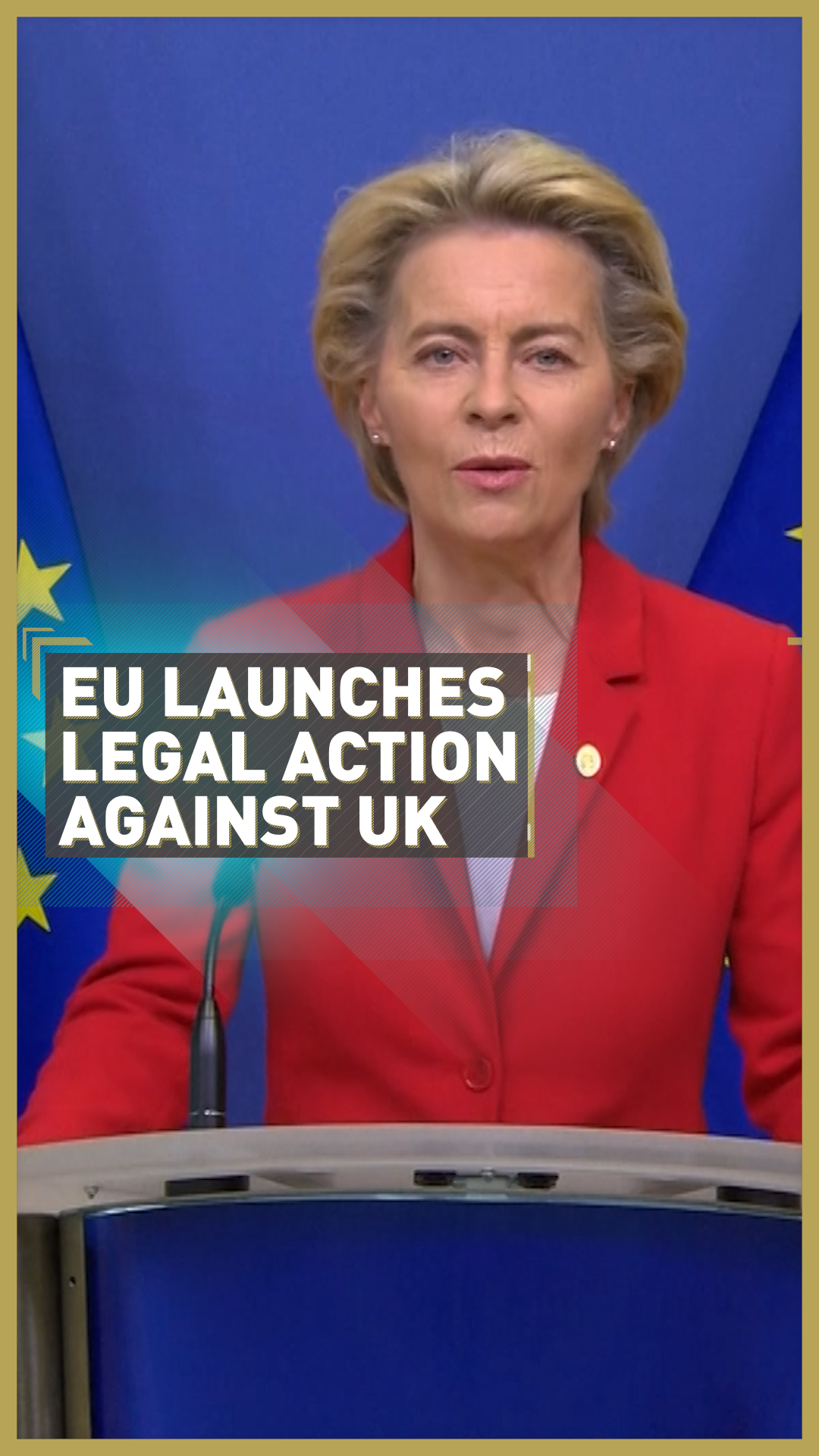01:35

The European Union has launched legal action against the UK over its Internal Market Bill, which the bloc claims breaks the binding commitments of its Brexit deal.
The UK's alleged infringements could lead to hefty fines being imposed by the EU’s top court, while the action threatens the progress of ongoing trade talks between the two powers.
Ursula von der Leyen, the president of the European Commission, the EU's executive, said that the UK bill "by its very nature is a breach of the obligation of good faith laid down in the Withdrawal Agreement."
She added: "If adopted as is, it will be in full contradiction to the protocol of Ireland-Northern Ireland [in agreement]."
The EU had given London until Wednesday to withdraw the bill, but instead UK lawmakers voted 340 to 256 on Tuesday to push the legislation past its last major House of Commons hurdle. It must also be approved by the UK's upper parliamentary chamber, the House of Lords, where it is expected to meet strong opposition.

If the Internal Market Bill becomes law, it will give the UK the power to disregard the part of the Brexit Withdrawal Agreement dealing with trade to and from Northern Ireland, which shares a 500 kilometer border with Ireland.
EU leaders fear that could lead to the reimposition of a hard land border and erode the stability that has underpinned peace since Northern Ireland's 1998 Good Friday Agreement.
The UK government has repeatedly stressed that it respects the peace accord and the Brexit Withdrawal Agreement, but wants the law as a "safety net" in case the EU makes unreasonable demands after Brexit that could impede trade between Northern Ireland and the rest of the country.
The EU action is a new low in worsening relations with the UK and comes amid trade talks between the two powers. Both sides are trying to forge a free trade deal by the end of the year but are at an impasse over state aid rules and access to fishing waters.
It is unclear whether the legal action will set back trade talks. A transition period, during which a trade deal was to be negotiated, ends in less than 100 days, on 31 December.
Video editor: Terry Wilson
Source(s): Reuters
,AP